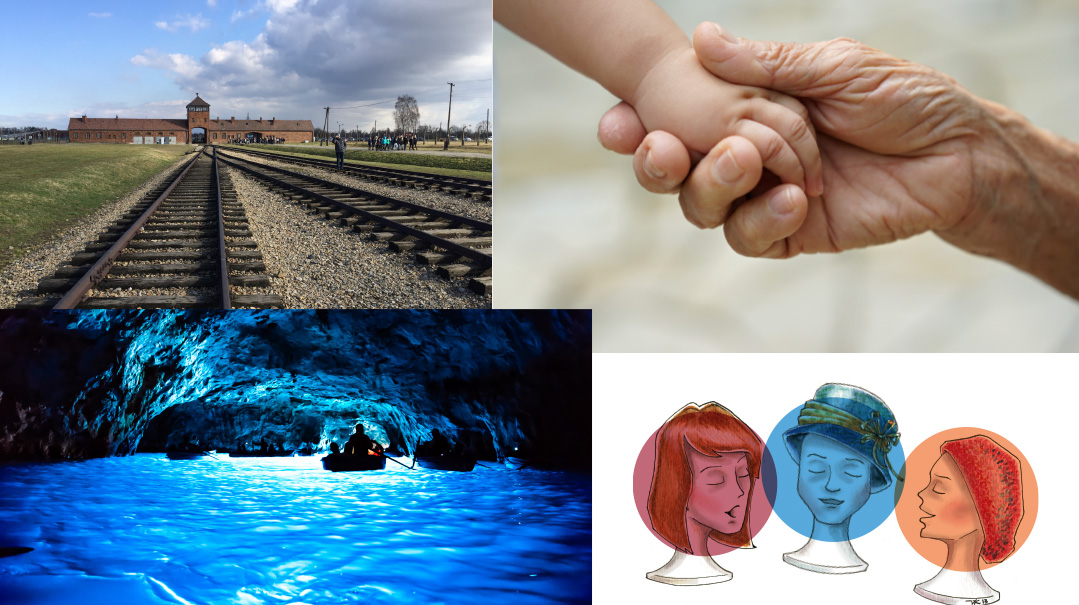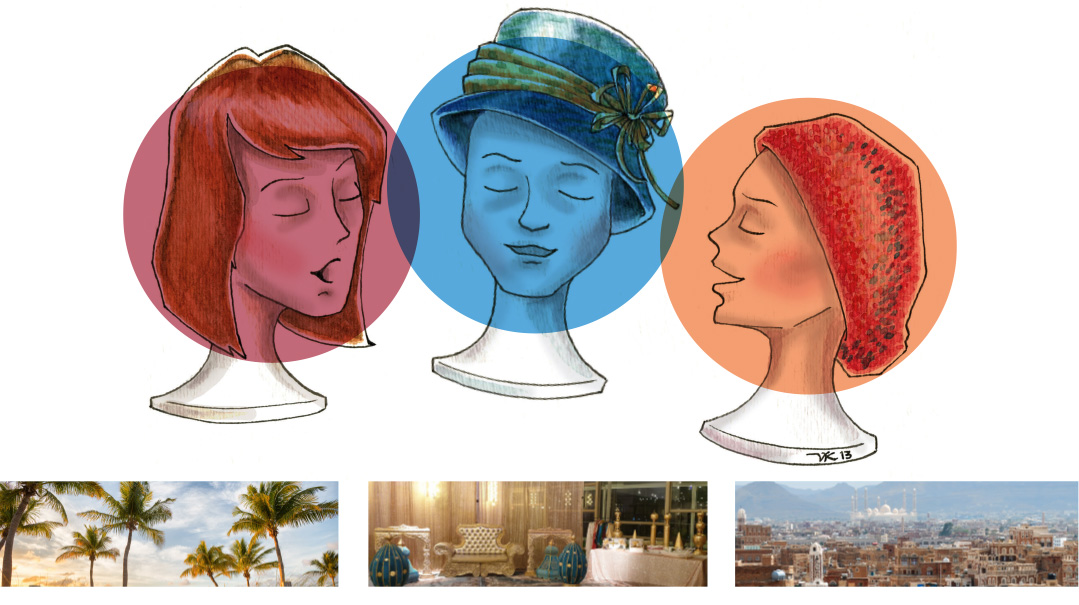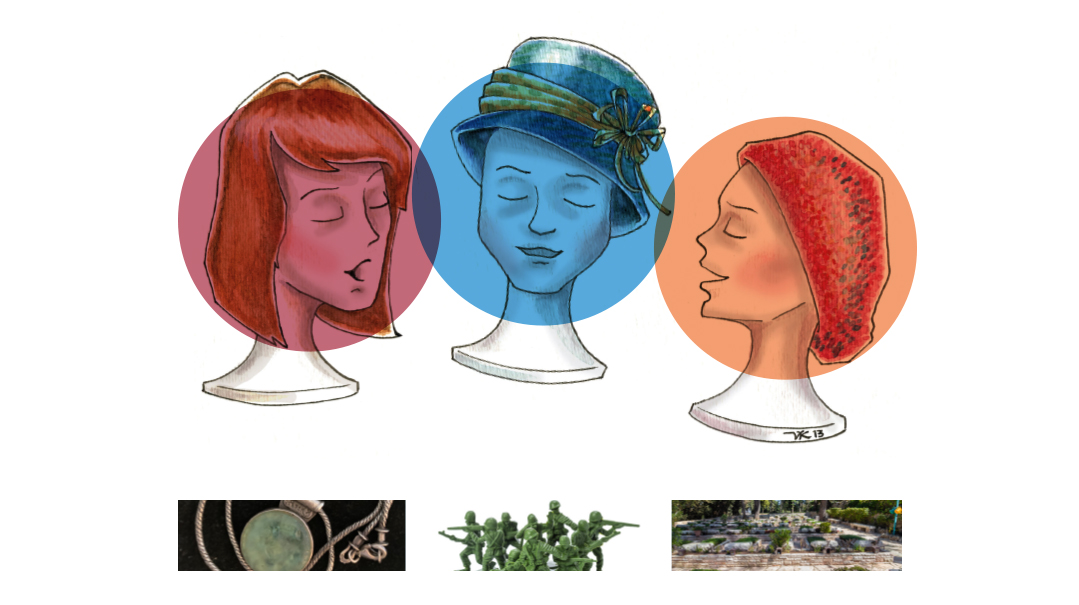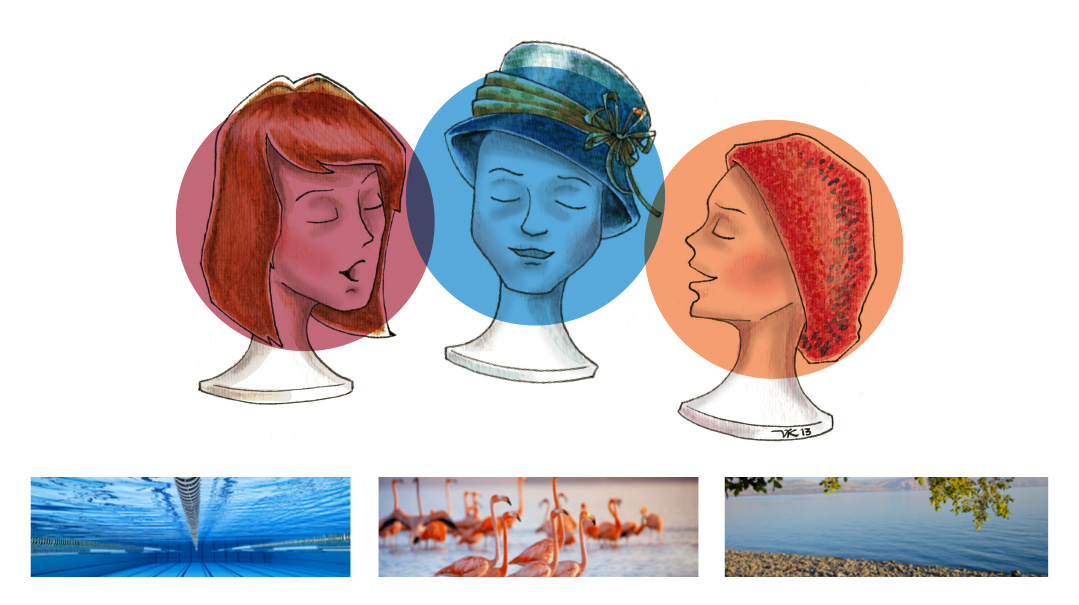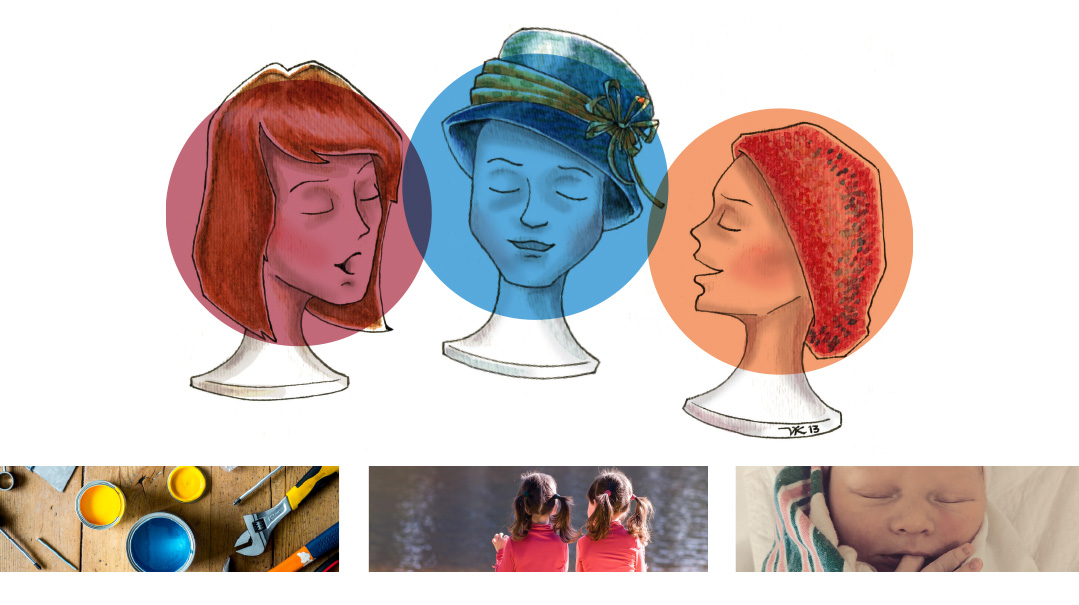Brief Encounters
| January 3, 2023Whatever the nature of any encounter, we posit that it results in some sort of Newtonian reaction, that it has some sort of impact on our lives
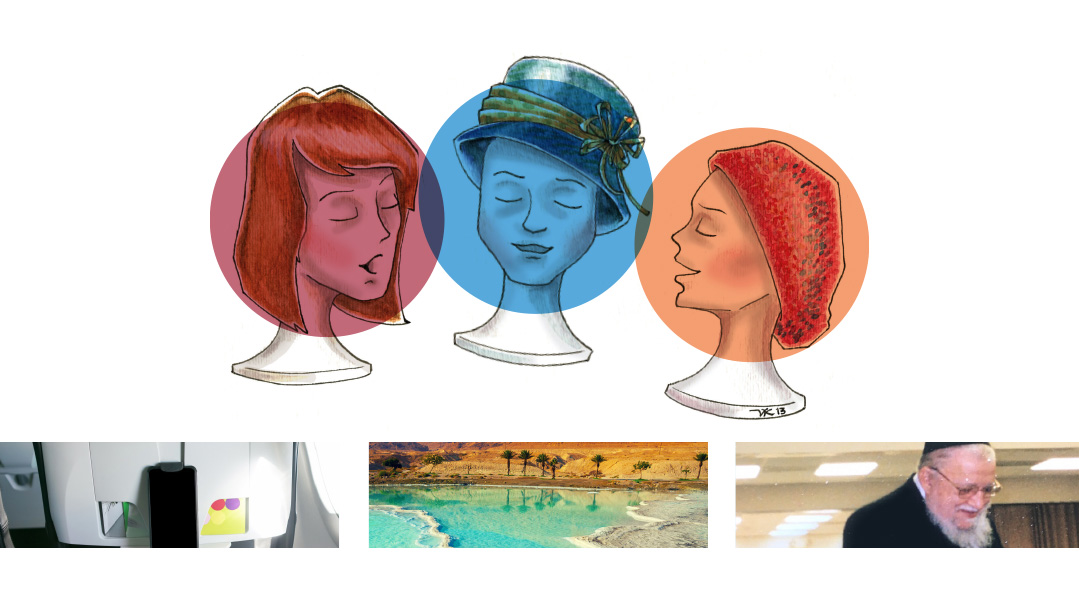
TOmisquote Newton’s Third Law of Motion, “For every action there is an equal or opposite reaction.” As nonscientific writers, we’d like to take the liberty of extending and modifying this law to human encounters and the reactions they generate.
Encounters can be fleeting or extended. They can be with people we barely know, with people we feel close to, or with people we’d never met before and will probably never meet again. Encounters aren’t necessarily just with individuals — they can occur with entire groups, networks, bureaucratic systems. Most encounters are quickly forgotten. Some live forever in our memories.
Whatever the nature of any encounter, we posit that it results in some sort of Newtonian reaction, that it has some sort of impact on our lives. The impact can be minimal — or it can be life-altering.
Come join us in an encounter with a neighborly gadol (and a questionable corned beef); in multiple encounters with the Yidden in the always-ready-to-help global JCN (Jewish Courier Network); and in three post-Holocaust official encounters that had a profound impact on the life of our mother, Rose Stark a’h.
Miriam recalls...
The Gadol Downstairs
Hooray for neighbors! Whether we need a quart of milk, a referral for a plumber, or a hug after a tough day, we often turn to those closest to us — that is, geographically.
Living, as I do, in an Israeli multi-person residence (we used to call them apartment houses), I know just how wonderful, wonderful neighbors can be.
And if one of the neighbors you encounter daily also happens to be your Rav, and an adam gadol as well, you can expect lessons that you would not have learned from a shiur or sefer… only a flight of stairs away.
The foil-wrapped corned beef had traveled many miles, from a kosher supermarket in Flatbush to our tiny freezer. We were living in a simple apartment in Migdal HaEmek, an impoverished dot of a town, in a small, idealistic kehillah of Anglos founded by our downstairs neighbor, Rav Nachman Bulman ztz"l.
In those days, before the “startup nation” had started up, and especially in a backwater like Migdal HaEmek, mehadrin meat was unavailable, just a luscious memory for Americans like us. But we’d found a way to satisfy our carnivorous instincts: ask relatives and friends to bring frozen meat, well-wrapped and kept in the plane’s frosty cargo hold, to our Israeli freezers.
This particular corned beef had arrived a few months before, with a visiting relative. I’d placed it, still wrapped in layers of foil, into the freezer and now, Erev Succos, it was time to cook up an unforgettable Yom Tov meal.
Excitedly, I ripped the foil off and looked for cooking instructions on the package. That’s when I saw it: the kashrus symbol. A kashrus symbol we’d never accepted when we lived in America.
Uh-oh.
Knowing that our downstairs neighbor, Rav Bulman, had been heavily involved in improving the kashrus situation of postwar America (among his countless other accomplishments), I raced down the stairs, pickled evidence in my hand.
The Rav stared at it. He thought, long and hard. Many times, he explained to me, when a person is being machmir in one area, he will be meikil in another. In this case, a chumra in kashrus might lead to a kulah in bal tashchis.
Finally, shaking his head sadly, he pronounced the verdict: Guilty as charged. “Your husband is a kollel yungerman in Eretz Yisrael,” he said. “This is not a hechsher that you should accept.”
I trudged back up the stairs to my kitchen.
I didnÕt throw the corned beef out; I couldn’t. I put it on the counter, resolving to have my husband, Nachman, do the deed when he came home.
While I was desperately trying to figure out a new menu for the chag, there was a knock at my door. It was my neighbor Sarah, who taught in a local school, accompanied by a girl in her young teens. Sarah was collecting money for this girl’s family, to help with their Yom Tov needs. Even in impoverished Migdal HaEmek, the story was grim. A father, unemployed. A mother, living without even a washing machine, now on bedrest with her eighth child.
Money? How much money could a couple living on a small kollel stipend afford? Five shekel? Ten?
And then my eyes fell on the lump on a corner of my counter.
“Stay here,” I told my astonished friend. “Be right back.”
I flew down the stairs. “Rav Bulman,” I asked. “This is not a corned beef for a kollel yungerman. But what about for a really poor family?”
I gave him all the details. Again, he thought long and hard. Finally, the verdict: Extenuating circumstances. Not guilty. Give them the corned beef!
I handed it to the girl, with cooking instructions and blessings.
On Yom Tov, thinking about that family’s feast — I never tasted a corned beef as good as the one I didn’t get to eat.
Marcia tells a tale of…
Frustrating vs. Friendly
Everything went smoothly during the first leg of Kayla and Eli’s return trip to Israel. Their misgivings about flying Turkish (“What if we end up in a prison for some trumped-up drug charge?!”) started to fade. Their friends’ positive reports must’ve been true.
The shanah rishonah couple deplaned in Turkey, reached the next gate, and started chatting with a woman also bound for Israel. They even agreed to watch her baby for a few minutes. Just as she left, Kayla suddenly realized…
“Oh no… my phone!”
She knew exactly where it was: nestled in the seat pocket in front of her on their previous flight.
“My life’s on that phone!” she moaned. “My ID… contacts… credit card info… banking info… How can we pay our bills? How can I get paid?”
Eli raced back to their arrival gate. The baby started crying. Kayla waited… and waited. Boarding time approached. No phone. No way to contact either Eli or the lady.
Kayla felt like crying along with the baby.
Finally… The woman returned, reclaiming her baby. Eli returned, panting. And the phone? Still missing.
Eli recounted his frustrating story. He’d encountered a guard at the gate doorway, asked him to fetch the phone, gave the exact seat number. The guard refused to help. Eli even considered running past him but rejected that idea (images of Turkish prisons popping into his head).
Eli was told to file a lost item report. That would entail leaving and returning through security — but no reentry without a Turkish visa! Whatever he tried, he’d encountered bureaucratic runaround.
Resigned, the couple boarded their next flight, knowing they’d have to file a lost item claim at Ben Gurion.
The next three weeks were consumed with countless fruitless encounters:
false leads and dead ends
painful holds on calls to the airline
website runarounds
message posts seeking anyone flying Turkish
middle-of-the-night overseas calls from people trying to help.
Just one example: a girl responded to a post on Chesed Anytime (part of Torah Anytime); she contacted her brother; the brother, enroute to Israel via Turkey, spent four futile hours encountering Turkish bureaucracy.
Eli and Kayla started looking for flights back to Turkey. Scratch that idea: they’d still need a visa to leave and reenter security to reach the Lost and Found.
After their first stressful week back in Israel, Kayla had a pivotal phone encounter… with none other than her Great Aunt Emmy Leah (of SisterSchmooze fame — yes, Kayla is my granddaughter!).
“It’s crazy!” she cried. “We purposely returned a week before Eli’s yeshivah zeman. We were so excited to return to Israel. We’d finally set up our apartment and were gonna chill. Instead, we’ve been consumed with trying to get my phone back. I’m starting to feel hopeless.”
EL offered a fresh perspective: “Look at it another way. Hashem knew you were going to lose your phone. So He gave you that extra week before the zeman to try to get it back.”
(I have such a wise sister! She always looks on the bright side.)
That was a turning point for Kayla.
Conversation with Hashem: “It’s all in Your hands. I’ve given up.”
Next day a woman called in response to another post. Her daughter was at Ben Gurion awaiting a flight to America via Turkey. A flurry of middle-of-the-night calls and emails ensued.
Coincidentally (or not?), the daughter actually had a Turkish visa from a vacation a few weeks earlier (it was expired, but no one noticed!). Fortuitously (or not?), one of her kids had also left a device on a plane — so she was going to the Lost and Found anyway. Miraculously, she was let through. She spent hours negotiating on Kayla’s behalf. Eventually, she got Kayla’s phone.
The phone made it to New Haven. From there it encountered many helpful Yidden all along the eastern seaboard (including a missed connection in Cherry Hill). Eventually it made its way to Kayla’s parents in Silver Spring — just in time for a visiting relative to take it along on her return trip to Israel.
Finally! Bills paid. Paycheck received. No need to cancel credit cards, get a new ID, buy a new phone. All after three weeks of encountering frustrating impediments — countered by Jewish kindness.
Emmy Leah describes…
Encounters With Officialdom
We've all had encounters with nameless officials at banks, or the post office, or government offices. Generally, we leave with a canceled check, a book of stamps, a renewed passport. Then we forget about them.
But some encounters can change a life.
Like three encounters our mother, Mrs. Rose Stark a"h, had with unnamed officials….
First Encounter: The Nameless Russian Official.
Sweden, 1946. The nightmare of Auschwitz, where her young husband, her baby, her parents and in-laws, three sisters and their families were murdered in one night was behind her. Also behind her, her year of slave labor and death marches. Still, Mommy’s sleep was haunted by bad dreams. She was sent to Sweden for rehabilitation.
Mommy’s hometown, Munkács, was now under Russian rule. A Russian official visited Sweden to meet the refugees. He invited our mother to “come home.” They’d pay her fare, provide basic necessities, find her a job.
“No matter where in the world you decide to go, the earth where you were born will always draw you home,” he told her.
Home? On the spot, Mommy decided: she’d never return to the land that sent her family, her people, to their deaths.
“So what will you do, child?” the Russian representative asked.
In her writings, our mother said an “angel” put the words in her mouth, because she’d never thought of it before: “I hope to go to America!” she answered.
The chill wind of the Cold War, just beginning, seeped into the room. The official’s face turned red.
“America?” he repeated — and stalked angrily out of the room, slamming the door behind him.
“After that, I cried all night,” Mommy wrote. “Now I was really homeless.”
But that fleeting thought about family in America stayed with her. After some months she contacted her uncle, who’d moved to the US before the war. Though she never met him — he died while she crossed the ocean — her aunt took her in to the new land.
Leading to the…
Second Encounter: The Nameless Judge and the Mailman.
Two years later, our mother married our father. Marcia was born — and with her daughter’s birth, Mommy’s nightmares stopped.
A “macher” offered to arrange her quickie American citizenship. But she’d learned at night school that one must live in the country five years before becoming a citizen. Mommy would wait and do it right.
Years later, after studying hard for the citizenship test, she finally stood in front of a judge, expecting difficult questions. She was almost disappointed at how basic they were: Who was the first president of the US? Who was the current president? How many states in the union?
Weeks later, five years after she arrived in the US as a homeless refugee, an unnamed United States mailman delivered — a letter… a refuge… a home….
American citizenship papers.
Though money was tight, Mommy gave the postman a large tip. He refused it, but she insisted, saying, “This is one of the happiest days of my life. I have a country.”
Which brings us to…
Encounter Number Three: The Nameless Hungarian Bureaucrat.
Our mother was grateful for the home and opportunities America gave her for decades. But in her seventies, she chose to follow Avraham Avinu’s example and come to her true home. To Eretz Yisrael.
One year, in her tiny Har Nof apartment, she received a letter from an unnamed Hungarian official. According to their records, he wrote coldly, her baby had been murdered in the Holocaust — and he included a check for $300 as “compensation.”
Mommy was outraged. She wanted to rip up the check. Compensation????
But then — a better idea. She’d use the money to take her family to the Dead Sea.
Our mother always loved the Dead Sea. Did the salty waters remind her of the uncountable tears she’d shed? Did its healing minerals give her emotional as well as physical comfort?
She didn’t say. But Mommy did write that when she looked at the water, the mountains, the sky up above, she felt the Divine Presence.
In the beauty of the true home she found at last, Mommy enjoyed the greatest encounter of all.
Her encounter with Hashem.
Join the Sisters through Zoom at Michlalah-Jerusalem’s Mrs. Rose Stark a"h Memorial Event, an evening of inspiration and emunah. For details, contact engl-jer@michlalah.edu.
(Originally featured in Family First, Issue 825)
Oops! We could not locate your form.

